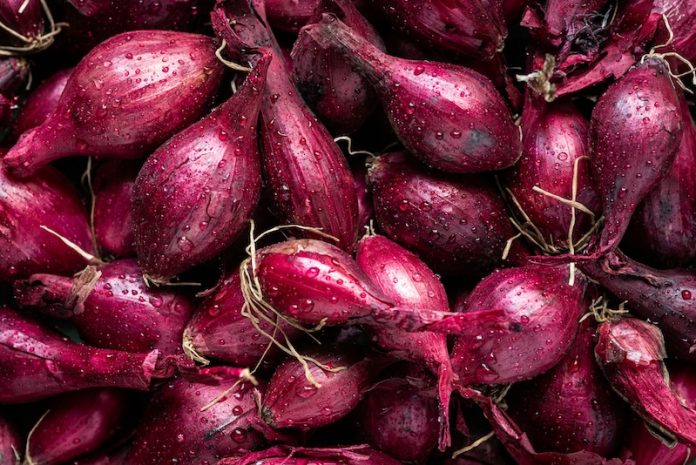
A recent study from the University of Bonn in Germany has found that a natural compound from red onion skin might help lower blood pressure in people who are overweight or obese. The key ingredient responsible for this effect is called quercetin, which is found in many fruits and vegetables, such as red onions, kale, apples, and capers.
Quercetin is part of a group of natural substances in plants known as flavonoids. These compounds have been studied for years because of their possible health benefits. Scientists have found links between flavonoids and better heart health, lower risk of some diseases, and reduced inflammation in the body.
Among these, quercetin stands out for its strong antioxidant properties, which means it helps protect the body from damage caused by harmful molecules.
The latest research focused on whether quercetin from red onion skin could be helpful for people who have higher-than-normal blood pressure—especially those who are overweight or obese. These groups are often at greater risk of developing serious heart problems, including heart attacks and strokes.
In the study, 70 adults took part. They were all either overweight or obese and had either pre-hypertension (blood pressure that is higher than normal but not yet high enough to be considered high blood pressure) or stage I high blood pressure. The participants were divided into two groups.
One group received a daily supplement containing 162 milligrams of quercetin from onion skin extract. The other group received a placebo, a fake treatment with no active ingredients. Neither the participants nor the researchers knew who was receiving the real supplement until the study was over.
The study lasted for six weeks. During that time, researchers carefully monitored each person’s blood pressure. At the end of the study, they compared the results between the two groups.
The findings were clear: people who took quercetin had a noticeable drop in their blood pressure. This effect was strongest in participants who already had high blood pressure.
For them, the systolic blood pressure—the higher number in a blood pressure reading—went down by an average of 3.6 mmHg compared to the placebo group. There was also a drop in both daytime and nighttime systolic blood pressure in people with elevated levels.
However, the supplement did not change other health markers related to the heart. For example, it did not seem to lower cholesterol, reduce blood sugar levels, or improve signs of inflammation or oxidative stress.
This suggests that quercetin’s benefits in this case were focused mainly on lowering blood pressure, rather than improving overall heart health or metabolism.
Still, even a small drop in blood pressure can be important. According to doctors, reducing systolic blood pressure by just a few points can lower the risk of heart disease and stroke over time. That makes quercetin a promising natural option for people trying to manage their blood pressure, especially if they are not ready or able to take medications.
In addition to this study, other research has shown that natural lifestyle changes can help improve blood pressure. These include drinking more tea, taking some herbal supplements, cutting down on added sugar, and getting enough vitamin D.
These steps may be especially helpful for people with health conditions like diabetes, where blood pressure control is even more important.
The study was led by Verena Brüll and her team and was published in the British Journal of Nutrition. The results add to the growing interest in using natural substances from food and plants to improve health.
While more research is needed to confirm the long-term effects of quercetin, this study offers hope that a simple compound from red onion skin might one day help people manage their blood pressure in a safe and natural way.
If you care about high blood pressure, please read studies that early time-restricted eating could help improve blood pressure, and natural coconut sugar could help reduce blood pressure and artery stiffness.
For more health information, please see recent studies about added sugar in your diet linked to higher blood pressure, and results showing vitamin D could improve blood pressure in people with diabetes.
Copyright © 2025 Knowridge Science Report. All rights reserved.



